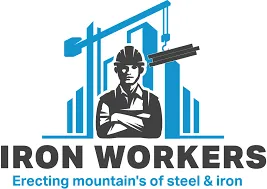
From Working Iron to Representing
ALTON—Like any successful trial lawyer, John Hopkins knows the importance of preparation. But he usually doesn’t write out the questions he plans to ask witnesses in depositions or in court.
“I like to react to what the witness is saying— not only what they’re saying, but how they’re saying it,” Hopkins says.
“If you have a script, you’re too worried about following your script. I don’t think it’s a good idea to be confrontational with their witness; they’ve been prepped to not give anything but name, age, and serial number.
“If you’re non-confrontational with them and you engage them in a dialogue, you can get them to be more reasonable and say things their lawyers don’t want them to say.” Hopkins, 61, runs John J. Hopkins & Associates in Alton where he represents plaintiffs in medical malpractice lawsuits and nursing home disputes. He also represents workers in retaliatory discharge, discrimination, and libel cases against employers.
Born and raised in East St. Louis, Hopkins grew up with a father, Charlie, who played catcher for the St. Louis Browns, now Major League Baseball’s Baltimore Orioles.
But the Hopkins family was better known as ironworkers. His grandfather, father, brother, two uncles, and several cousins were members of the ironworkers’ union.
Hopkins spent summers in his late teens and early 20s working for various contractors via Ironworkers Local 392. He helped build a dam, bridges, highways, and buildings.
“Obviously you learn the value of hard work,” Hopkins says. “You understood a couple of things—that it’s hard work, that it’s dangerous work. And, therefore, if safety rules are not adhered to, an already-dangerous job becomes unreasonably dangerous.”
He’s not exaggerating.
Hopkins saw three men die on job sites, one a fatal accident that happened in front of him. A bucket of concrete fell on a man who ended up impaled on a rod.
“I was there, right with it. It was very traumatic because he was a young guy. He was not that much older than me. He was killed instantly on the job,” Hopkins says.
“I knew that it was a dangerous job, and when I became a lawyer, I understood the importance of the enforcement of safety rules to minimize, as much as possible, the danger of construction jobs.
Safety rules are there for a purpose, and they need to be enforced.”
He can’t exactly recall when he started thinking about becoming a lawyer, but he knew from a young age that he wanted to do it.
“It went over very well, obviously, but my father, he wasn’t able to get me the money to go to school,” Hopkins says. “But he was able to get my temporary union card so that if I wanted to work, I could get the job done me.”
After Hopkins graduated from St. Louis University in 1973, he attended the University of Tulsa College of Law and earned a law degree in 1977.
Experience Bred Familiarity
Hopkins began his law career at the Law Offices of William Schooley in Granite City, where he clerked during law school. The firm handled personal injury and workers’ compensation cases, representing many ironworkers.
“The people I represented, I worked with on previous jobs,” he says. “It was actually a big advantage in that the bulk of the cases involved injured ironworkers, boilermakers. I had been on the job site, so I knew a lot of the terminology.”
Shortly after joining the firm, Hopkins was trying cases and handling depositions.
“It was just a great opportunity to learn how to be a lawyer,” he says.
Schooley wasn’t the most “gregarious fellow,” Hopkins recalls, but he served as a mentor.
“I learned the influence of your first boss can be a big thing in a lawyer’s life,” Hopkins says.
Schooley taught Hopkins to keep his word because clients expect it.
“And always remember it is the client’s case. The goal is not to make you look good but to give the client some justice,” Hopkins says. “The clients want their money now. They want their settlement now, and they don’t care about your publicity.”
In 1981, Hopkins joined Calvo & Guzzardo in Granite City. There, he primarily represented steelworkers in workers’ compensation cases. The area had four functioning steel mills and 10 plants supplying products and services to the mills at the time.
He moved into work with another lawyer in 1984. They merged with two other firms in 1990 to handle asbestos litigation. That firm employed 16 lawyers at its peak and, at various times, kept offices in St. Louis, Granite City, Wood River, Peoria, and Edwardsville.
In 2002, Hopkins decided to open his own office in Edwardsville. He moved to Alton in 2011.
Patrick Johnston of Johnston Law Offices P.C. in Edwardsville worked with Hopkins in the early 1990s. Johnston says Hopkins was a teacher who let him try cases and “cut your teeth.”
“I tried multiple trials with John,” Johnston says. “I worked for the guy and I still like him.”
“John is very thorough and believes in the jury system and believes in the client,” says Johnston. “John will try a case if he thinks he’s right. Whether he wins or loses, if he thinks someone did something wrong, he’ll take it a trial. A lot of guys won’t do that anymore.”
A few cases stand out in Hopkins’ career. Hopkins represented a plaintiff class that ranged from 1,200 to 1,800 in a lawsuit against Jackson National Life Insurance Co. in Lansing, Mich. The suit accused the company of cheating policyholders out of annuities.
“They were shafting the old policyholders in deference to the newer policyholders,” Hopkins says. “It was a scam that was in violation of the Illinois Consumer Fraud and Protection Act.”
After 14 hours of mediation, the case settled for $28 million in 2009 in St. Clair County Circuit Court.
In the late 1980s in Madison County Circuit Court, Hopkins represented a steelworker who sued a steel hauling company for wrongful termination and libel after the company accused him of stealing tools.
He won a jury verdict in excess of $350,000 in the trial court, the state appellate court reversed the verdict, and the Illinois Supreme Court reinstated the damages. The hauling company asked the U.S. Supreme Court to hear the case on grounds that the suit was preempted by federal labor law, but the nation’s highest court declined.
Hopkins also has pursued lawsuits that produced confidential settlements in medical malpractice cases.
He obtained six settlements in Madison County from the same hospital in the 2000s when it employed a chief of surgery who used cocaine.
In Montgomery County in the early 2000s, Hopkins reached a settlement for a client who suffered a brain injury when a hospital-employed an unlicensed emergency room physician who was really an unlicensed plastic surgeon.
Securing the settlement became tricky because the physician’s insurance company went out of business. The doctor didn’t work directly for the hospital, so Hopkins needed to make a case against the hospital itself in order to recover damages.
“The best part of my job has been when people come in with a problem. You can solve the problem by getting them some justice, getting them some monetary compensation,” Hopkins says.
“It gives them a closure to their life. This is especially true to a death case,” he says. “And a settlement can give them that as opposed to a public trial. The best part of the job is when you can tell them they can close the book on this because we’ve done the best we can and we got them some justice in the sense that they’ve been compensated for their injuries.”
The challenge, Hopkins says, is working without a safety net.
“If you don’t win, you don’t get paid. This can be a big challenge. It puts a lot of pressure on you,” Hopkins says.
When potential clients meet Hopkins, their emotions “run the whole waterfront,” he says.
“Some people are confused. They know something happened, but they don’t know why,” he says. “They want answers as to what happened to their loved one or themselves. A lot of people are angry, especially in employment cases.”

A Professional Bulldog
Timothy Richards of Neville, Richards & Wuller LLC in Belleville has represented defendants against Hopkins in medical malpractice cases for nearly 30 years.
“I have the ultimate respect for John. He is always prepared,” Richards says. “He always has a plan and I have to say that among all the adversaries that I have, he is an absolute gentleman. He fights hard and competently for his client, but on the other side, he is a gentleman and very professional.”
Hopkins also excels at knowing the medical facts of his cases, Richards says.
“He will know the medicine very well,” says Richards. “He’s an experienced cross-examiner. He basically has excellent trial skills, and he’s a bulldog, but a very professional bulldog. I know when I have a case with him I’ve got my hands full.”
Hopkins is a father of three and grandfather of two. He enjoys writing guest columns for the Alton Telegraph and Madison County Record. He also teaches a class on constitutional law for the Alton-Wood River Bar Association, where he serves as president.
In 2001, Hopkins chaired an Illinois State Bar Association committee that worked on a proposal to mandate that lawyers get legal malpractice insurance.
“I had seen several cases in which people were brutally treated and their lives were ruined because of the malpractice of attorneys, but the attorneys didn’t have a dime of insurance,” Hopkins says.
The Illinois Supreme Court rejected the plan and the state instead implemented mandatory continuing legal education courses. Hopkins also stays active in the Illinois Trial Lawyers Association, serving on the board and as secretary and treasurer.
“I believe that being involved in the various legal organizations is important because it helps you raise the bar for your profession and it helps better the profession,” says Hopkins.
To remind him of his roots, Hopkins keeps his grandfather’s old aluminum lunch box in his office. The box shows signs of wear. Its handle is a simple wire.
“I just have it in the office on the shelf to remind me there are a lot of harder ways to make a living than what we’re doing,” Hopkins says.
About 35 years ago, during the first few years of his practice, Hopkins wrote down career goals and put them in that lunch box.
After an interview for this article, Hopkins looked inside the box. His list of goals included joining the ITLA Board of Managers, securing a million-dollar settlement for a client, and becoming a partner in a law firm by his fifth year of practice.
He accomplished them all.
This article originally appeared in Leading Lawyers Magazine—Consumer Edition for 2013 and has been reprinted with permission. © 2013 Law Bulletin Publishing Co.
You're hurting.
It's not your fault.
Someone has to pay.
Clients Feedback
Education is the passport to the future for the tomor row belongs to those who pre pare for it today. Sed ut perspiciatis unde omnis natus errorsit vo luptatem. Education is the passport to the future credit repair.

John don
Education is the passport to the future for the tomor row belongs to those who pre pare for it today. Sed ut perspiciatis unde omnis natus errorsit vo luptatem. Education is the passport to the future credit repair.

Jane don
Developer
© Copyright 2022 Site Designed and Hosted by Big Z Media
John Hopkins provides legal advice and representation for residents of Madison, Jersey, and St. Clair County IL, St. Louis, MO and the entire Metro St. Louis region. In addition, John Hopkins routinely handles cases throughout Southern and Central Illinois and Eastern Missouri. Our Illinois clients are from cities including but not limited to Alton, Belleville, Caseyville, Carlinville, Edwardsville, Godfrey, Wood River, Roxana, East Alton, Edwardsville, Litchfield, Vandalia, Highland, Waterloo, Jerseyville, Granite City, Collinsville, O’Fallon, Fairview Heights, Glen Carbon, Cairo, Mt. Vernon, Marion, Carbondale and Columbia. Our Missouri clients are from cities including but not limited to Kirkwood, St. Charles, O'Fallon, Springfield, Cape Girardeau, Poplar Bluff, Branson, Sullivan, Washington, Columbia, Bowling Green, Troy, Hannibal Kirksville and Jefferson City.
This website, and the information contained within this site, is Attorney Advertisement. The choice of a lawyer is an important decision and should not be based solely upon advertisements. Past results afford no guarantee of future results. Every case is different and must be judged on its own merits.

